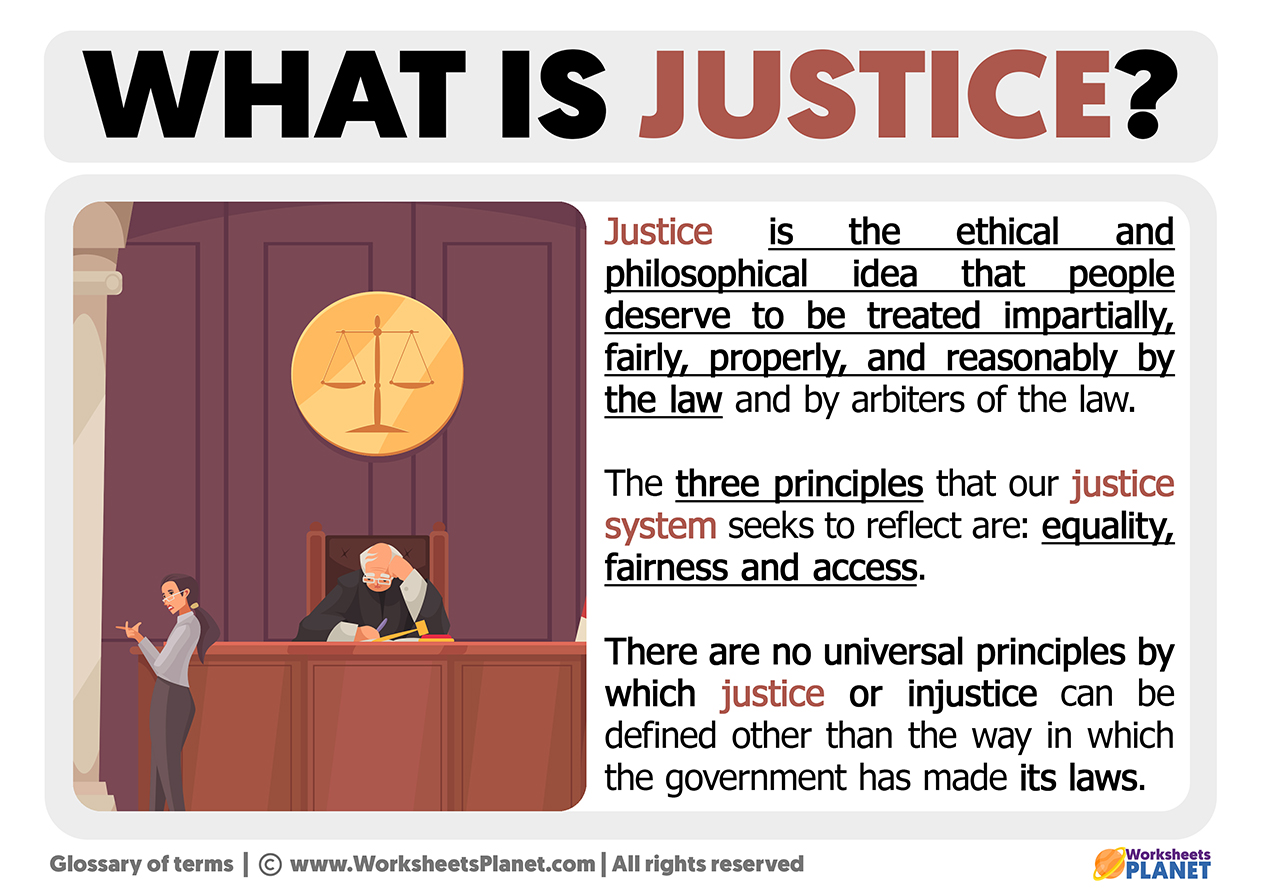Justice is an essential value in all societies and is governed by the application of the law. This principle aims to ensure that actions are taken truthfully and that each person receives what is due, acting objectively and fairly.

Although justice is a subjective concept, where each person can have a different definition, it is generally considered as a combination of values such as equity, freedom, and equality. These values must govern the rule of law and allow justice to be dispensed correctly.
There are various types of justice, each with a specific focus. Distributive justice focuses on the equal distribution of economic and productive resources. In contrast, restorative justice focuses on the victim of a crime and restoring their well-being before the damage is caused. Procedural justice seeks to impose rules for everyone to comply with the laws without exceptions, and to sanction those who violate the laws, while retributive justice treats everyone according to how they treat others.
Justice is dispensed by courts and judges who interpret and apply the law, but representatives elected democratically by the citizens develop the laws that regulate this application. Therefore, the citizens have the final word on what is considered just and what is not.

